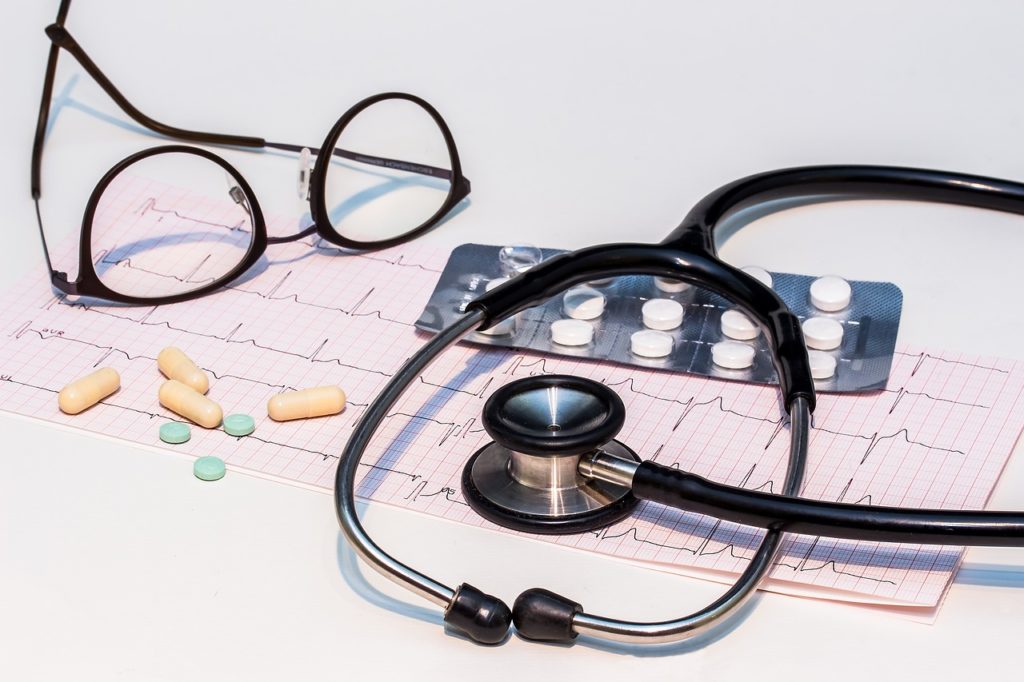As we know, mental illnesses result due to flawed chemical transmission in the brain. They happen because some chemicals are released more and some less than required. Basically, the neurotransmitters which are responsible for mood, cognition, social interaction, self confidence, judgement, motivation and biological functions such as sleep, appetite and sexual behaviour go haywire leading to trouble, noticeable mostly to the sufferer ( in depression, anxiety ) and sometimes ( in OCD, Psychosis) to other people also.
When medicines are prescribed to a person with mental illness, the discretion for which is best left to the mental health expert in consent with the patient, these are given for a concrete purpose. Medication aims at correcting the imbalance in brain circuitry. Meds generally take about 6 to 8 weeks to start showing their effect. In the meantime, it is important to keep having faith and keep going on with the prescription. Some people may experience slight heaviness in the head, trouble falling asleep or trouble waking up, acidity or some other minor issues which resolve in 7 to 10 days for most of them. One must discuss with his doctor if the initial side effects last for longer than that.
It is a misconception that medication given in psychiatry is addictive or these are sleeping pills. The meds for mental illnesses are as safe or unsafe as any other drug used in any other field of medicine. The best would be to discuss and get assured by one’s doctor on this before one decides not to start them at all because it is only with the help of meds that most of the mental illnesses get better really soon. At least, the drug treatment initiates the recovery in place and gives room to counselling which needs more cooperation and receptiveness from the patient.
Once the good effect of meds starts showing, one must continue them for the prescribed time period. Some people may try to see whether they can maintain well without them at various phases of their treatment. And in that attempt, they lower the dose or take the meds erratically, or completely stop them. However, it is not advisable to do any of those things without consulting one’s doctor. Because every time one is stopping meds, one is going to wait for a longer period of time to get them to work again. Meds in psychiatry are always started with a low dose which is gradually built up over time depending upon a patient’s response to themand his tolerability to the side effects. One should never start, stop or alter the doses and frequency of the pills on one’s own. An open and honest discussion with one’s doctor before taking any such decision is imperative.
Another important aspect of psychiatric medication is the prescribed timing of a drug. Some meds help go off to sleep, which are of course to be taken at the bedtime. Whereas others promote wakefulness or alertness, which need to be taken in the daytime. It is advisable to discuss with one’s doctor, the daily schedule one follows in order to get the timing right. Night shift workers may have to take their meds accordingly.
Lastly, psychiatric medication is slow to act and the patient may have to take it for a long period of time, sometimes weeks, months or years, depending upon the nature and severity of illness and other factors. It is unfortunate that mental Illnesses are such that they take longer to get treated.
A simple analogy here to understand the role of meds in mental illnesses would be – using umbrella in rain. Umbrella is what meds are and rain is what the illness is. You are not stopping the rain to happen by using umbrella, you are just protecting yourself from rain by unfolding it. Rain will go on for whatever time it has to. Umbrella helps you protect yourself from getting wet. And it has to be used till the very time rain stops, may be hours or days if you get stuck in heavy monsoons. You may only fold it back when you know the rain has stopped completely. If you keep peeping outside the umbrella, time and again during the rain, rest assured you will get wet. The side effect of holding the umbrella is that you have to hold it with one of your hands, and hence you have only one other hand left to do other things. However, in rains, what else is one expected to do other than protecting himself from getting wet? Most importantly, there may be a drizzle when you actually don’t need the umbrella (a mild illness where meds are not required) but be sure to carry it with you since the drizzle may turn into a heavy downpour anytime anywhere.
Wishing you the best of mental health today and always!
Dr Apala


Very helpful article understanding how exactly medicine works in psychiatry…Umbrella in rain
Thank you Kirti.
Nicely written in simple words.
A common person can understand well.
I want to ask a Q.
Why not one should try to create positive circumstances for the pt along with medicines.
Doctor can try to do counselling for pts’ nears n dears.
???
Thank you Dr Vijaya. Yes, including family in the therapy is an important and required part of the treatment process.
Read this last year and again now, this is reassuring to read for a person who is getting help. The neurotransmitter imbalance , if.only there were a blood test, would be so much easier for people who need help for their mental health to recognize the same instead of doubting themselves, stigmatising the issue and waiting to seek or never seeking a consultation with a psychiatrist.
Very lucid and reassuring article . Thank you , Apala ! I especially liked the analogy between rain and illness .